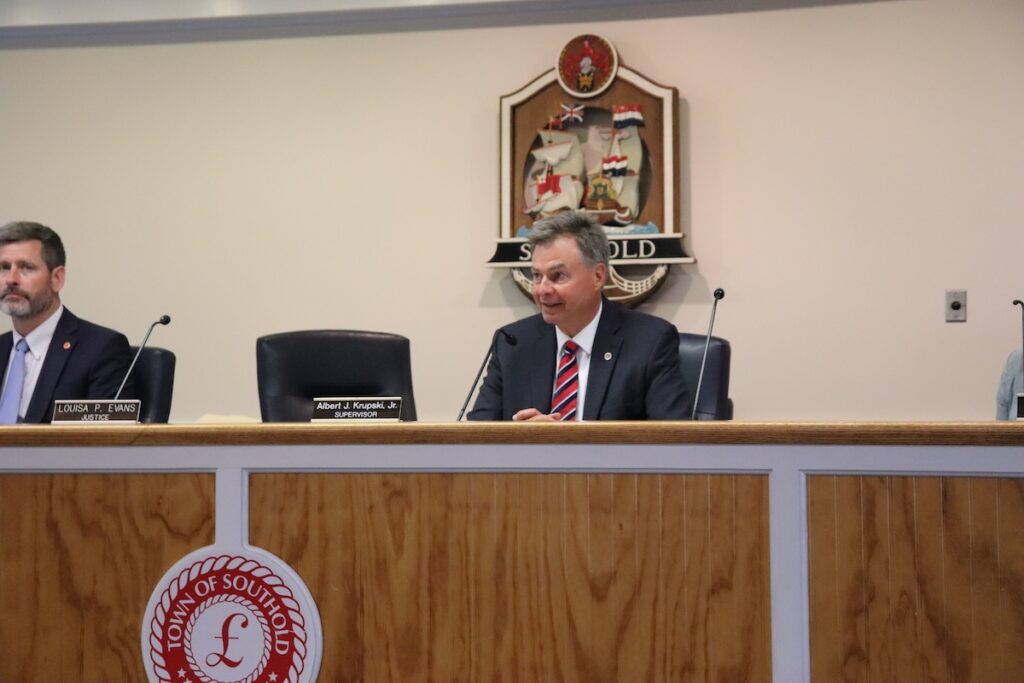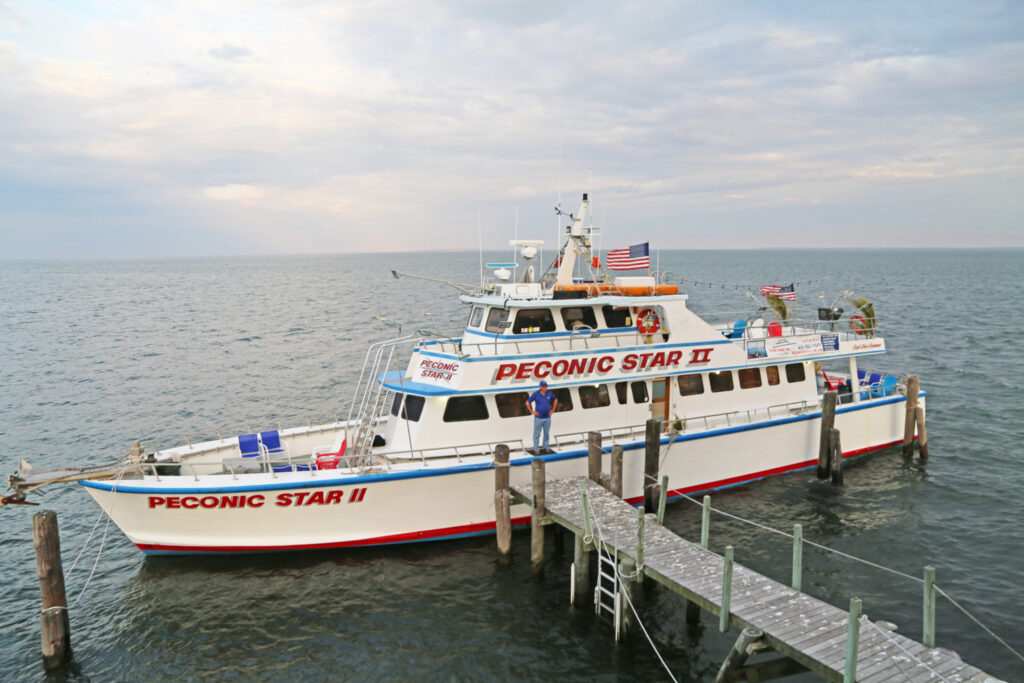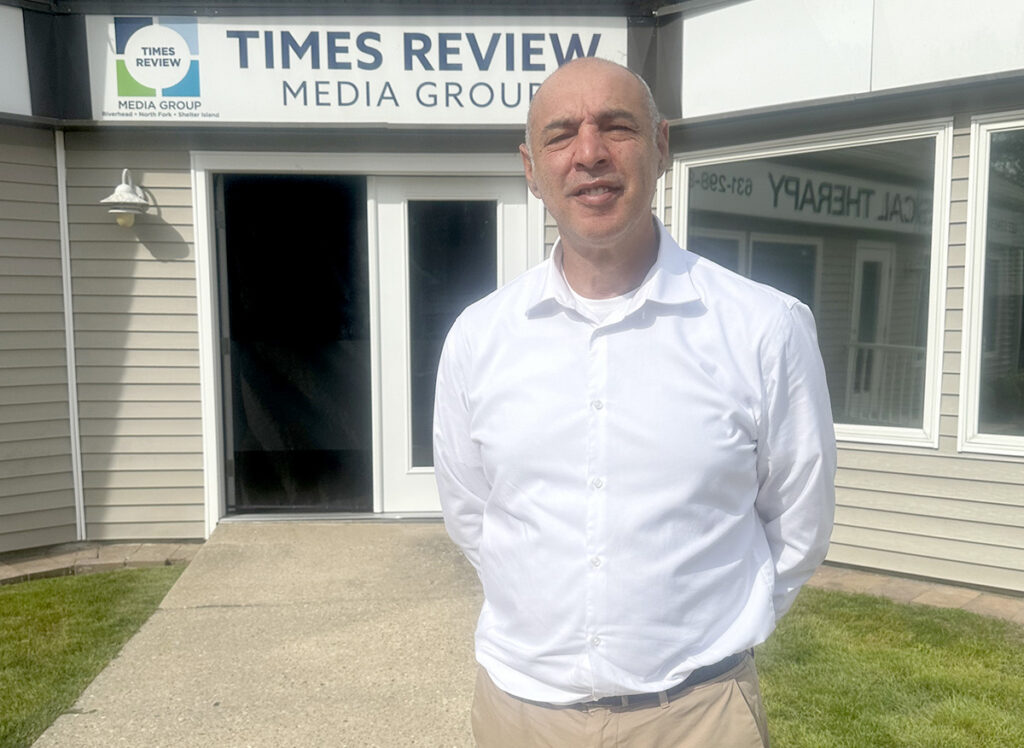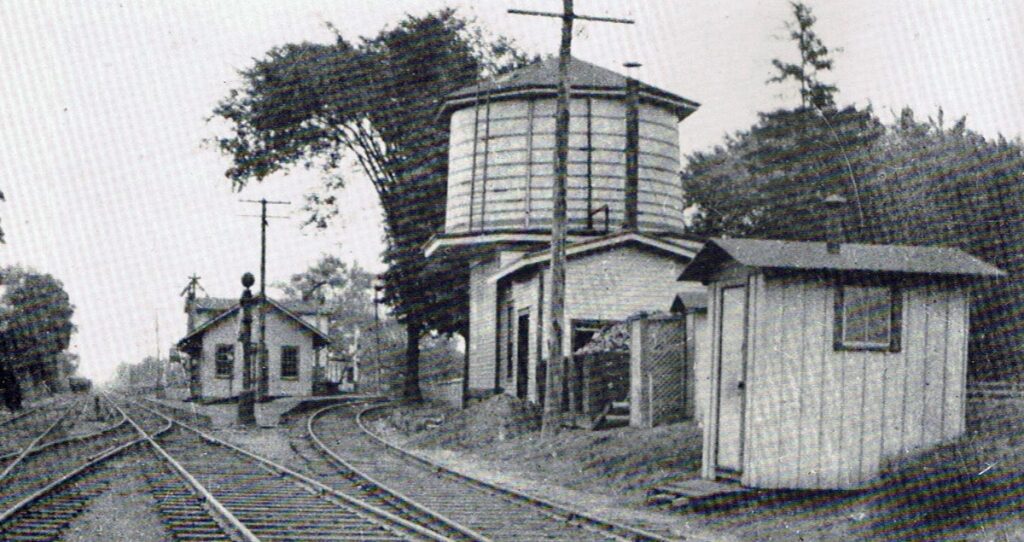Political signage law tabled by Southold Town Board

A proposed political sign law in Southold was tabled for further public input with a vote set for July 22 at 4:30 p.m. after two community members questioned the law’s constitutionality at a June 24 Town Board public hearing.
“While the town may not constitutionally regulate speech, the purpose of this… proposed action is to regulate signage based upon aesthetic and visual impacts,” town attorney Paul DeChance said at the beginning of the public hearing. “There’s a distinction there, and I think it’s important to note it at the top of the hearing.”
Political signs were defined as “any sign that includes the name, symbol or insignia of a political party or candidate” by Southold assistant town attorney Ben Johnson during the public hearing Tuesday night. Ten people were in attendance.
The proposed law acknowledges that “while the excessive display of political signs during campaigns can be unsightly and distracting to passing motorists, such signs provide an inexpensive means for candidates and political parties to express their views.” There is no law currently on the books regulating political signage in Southold.
Highlights of the proposed law:
- Political signs must not exceed 32 square feet in area on privately owned residential, commercial or industrial properties. The signs must be securely fastened.
- Electronic or flashing signs are prohibited.
- Signs must not obstruct or impair visibility or traffic in any way, nor create a hazard or disturbance to public health, safety and welfare.
- Political signs can only be displayed 60 days preceding and 10 days after the scheduled primary or election for which they were placed.
- No one is allowed to place political signs on Southold Town-owned land, including municipal-use parcels, town rights-of-way, town parks, utility poles, signs, beaches or any town structures. The Town reserves the right to remove any signs that are placed in prohibited areas.
- Individual candidates for public office would have to pay a security deposit, set by a Town Board resolution, to post signs. Alternatively, political parties can pay the security deposit set by the Town Board which would cover all candidate signs associated with that party.
- All payments could be made to the town clerk’s office and returned by Town Board resolution. Individual candidates or political parties who violate the law would forfeit the return of their security deposit.

Supervisor Al Krupski said the law aims to address signs that are posted in areas of the town where they are not removed and blow away. In these situations, he said the signs leave behind a wire frame that can cause “quite a bit of damage” to Department of Public Works machines when they mow grass near road edges and create flying projectiles for nearby vehicles.
“That’s one of the things that we’re trying to address, [it’s] a public safety concern,” Mr. Krupski said.
Orient resident Tom Stevenson criticized the law and said residents shouldn’t need government approval to “exercise our First Amendment rights.” He acknowledged that political signs can be a nuisance in public rights-of-way and encouraged the town to remove any signs posted at those locations. Mr. Stevenson asked that the Town Board continue to allow residents to post political signage on their private properties as they so choose.
“I just don’t think I should have to put up a deposit to exercise my constitutional rights,” he said.
Larry Tuthill, also an Orient resident, opposed the proposed law on a similar basis.
“I don’t believe we should be regulating political speech,” he said.
Mr. Tuthill added that the law would be difficult to enforce, because there are elections for positions like school boards and the park district.
“We then get into the issue of these presidential primaries and congressional primaries,” he said. “Presidential candidates are not going to come knocking at the town clerk’s office to give a deposit.”
He said he understood the intention of the proposed law to improve aesthetics in the township, especially during the fall tourism season.
“Democracy is not pretty,” Mr. Tuthill said. “We have to put up with speech we don’t agree with. We have to put up with a lot of things that we don’t agree with in a democracy. And I agree with you, it’s too many signs in the fall. But you, a government, should not be regulating political speech.”
Mr. Krupski reiterated that the law’s intent is not to regulate political speech, but to compel residents not to leave the signs on the side of the road.









